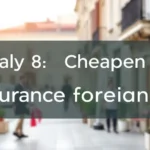France Insurance Foreigners 2025
You might agree that navigating France’s healthcare system can feel like a labyrinth. In fact, France spends approximately 11.3% of its GDP on healthcare—one of the highest in Europe. This guide promises to demystify health insurance France for foreigners. We’ll cover legal requirements, cost breakdowns, registration steps, and plan selection. You’ll learn exactly what to do. Simple. Effective.
Table of Contents
- Understanding France’s Healthcare System
- Legal Requirements for Foreigners
- Types of Health Insurance: Public, Mutuelle, Private
- How to Register and Apply for Carte Vitale
- Choosing the Right Plan: Expat Profiles and Options
- Common Mistakes to Avoid
- Future Trends in Expat Health Coverage
- FAQs
- 1. What is the cheapest way to get health insurance in France as a foreigner?
- 2. Can I use travel insurance for a student visa?
- 3. How long does Carte Vitale processing take?
- 4. Do I need a mutuelle if I have private expat insurance?
- Conclusion
Understanding France’s Healthcare System
Hook: Ever wondered why French doctors strike such a balance between quality and cost? Let me explain.
France’s public system, known as Assurance Maladie (PUMA since 2020), reimburses 70–80% of most medical expenses. You pay upfront, submit receipts, and get reimbursed. And another thing: many doctors in Paris or Lyon speak English (thankfully!).
In other words, once registered you benefit from universal coverage. It’s like having a safety net wherever you roam.
“Assurance Maladie offers comprehensive care — from GPs to specialists — with high reimbursement rates, making France a top destination for expats.”
– Relocate.me
Actionable Takeaway: Check your eligibility on the Ameli website within your first month of arrival.
Legal Requirements for Foreigners
Hook: What’s mandatory to obtain your Carte Vitale? You might be wondering.
Simply put, all long-stay visa holders and residence permit applicants must prove health coverage. That’s visa compliance 101. Lack of insurance can delay your titre de séjour (residence permit) by weeks.
Here’s the deal: you either enroll in the public PUMA scheme or show proof of a recognized private plan meeting Schengen standards.
- Short-term visitors: valid travel health insurance (Schengen-compliant).
- Long-term residents: registration under PUMA and complementary mutuelle.
- Freelancers and students: specific PUMA pathways or private alternatives.
Expert Quote: “Stricter immigration laws in 2025 require detailed health coverage evidence for any visa renewal,” notes Centuro Global.
Actionable Takeaway: Gather your ID, proof of address and bank details before applying.
Types of Health Insurance: Public, Mutuelle, Private
Hook: There’s more than one way to get covered in France.
PUMA is your gateway to the public system. But public coverage only reimburses a portion. That’s why most residents top up with a “mutuelle”—a complementary plan that covers the rest.
Mutuelle costs range from €35 to €100+ per month for working adults; retirees pay about €130/month. Want full coverage? A private international plan might be your best bet—starting at €72/month with flexible options.
Real example: Sophia, a graphic designer from Canada, saved €200/year by switching her mutuelle plan when she turned 35.
Actionable Takeaway: Use online platforms like Doctolib to filter English-speaking doctors and compare rates.
How to Register and Apply for Carte Vitale
Hook: Ready to get your green card for healthcare? It’s easier than you think.
- Create an account on Ameli.
- Submit scanned ID, proof of address, birth certificate and bank details.
- Wait 2–4 weeks for your social security number (numéro de sécurité sociale).
- Receive your Carte Vitale by mail—activate it online once it arrives.
Pro tip: Label your documents in French (even rough translations work). It speeds up processing.
Choosing the Right Plan: Expat Profiles and Options
Hook: One size doesn’t fit all—here’s how to pick what matches your lifestyle.
Are you a student, freelancer, family or retiree? Each profile demands a different mix of public and private coverage.
- Students: PUMA with budget mutuelle or campus-specific schemes.
- Freelancers: Private plans that waive medical exams, renewable monthly.
- Families: Family bundling often yields 10–20% discounts.
- Retirees: Comprehensive mutuelles with long-term care add-ons.
Common Mistake: Signing for the cheapest plan without checking foreign hospital coverage (ouch!).
Actionable Takeaway: List your anticipated services (e.g., dental, optical) before comparing.
Common Mistakes to Avoid
Hook: Avoid these pitfalls or face extra bills.
- Missing bank details—your reimbursements stall indefinitely.
- Overlooking prescription coverage—some mutuelles cap pharmacy costs.
- Assuming all plans cover pre-existing conditions (they often don’t!).
Takeaway: Read the fine print. Seriously.
Future Trends in Expat Health Coverage
Hook: What’s next for 2026 and beyond?
Digital claims and teleconsultations will rise. Expect AI-driven risk assessments to personalize premiums. And guess what? The government is piloting instant e-vitale apps in some regions (Bordeaux, Toulouse).
Actionable Takeaway: Subscribe to Ameli newsletters and insurer alerts to stay ahead.
FAQs
1. What is the cheapest way to get health insurance in France as a foreigner?
The most cost-effective route is PUMA enrollment plus a basic mutuelle (€35–€50/month). Compare quotes annually to lock in low rates.
2. Can I use travel insurance for a student visa?
No. Students need a long-stay visa plan or PUMA registration—Schengen-only travel policies won’t suffice for a titre de séjour.
3. How long does Carte Vitale processing take?
Generally 2–4 weeks after submitting complete documents; delays happen around holidays (plan accordingly).
4. Do I need a mutuelle if I have private expat insurance?
If your private plan reimburses 100% of French rates and includes hospital cover, a mutuelle isn’t mandatory—but check visa rules first.
Conclusion
Summing up, getting health insurance France for foreigners in 2025 involves understanding the public PUMA system, topping up with a mutuelle or private plan, and satisfying visa requirements. You now know the steps to apply for Carte Vitale, avoid common mistakes, and pick the right coverage based on your profile. Next steps:
- Start your Ameli registration today.
- Gather all required documents and translations.
- Compare mutuelle and private plan quotes online.
The bottom line is: with the right info, securing your French health coverage can be straightforward. Bonne santé (here’s to your good health)!





